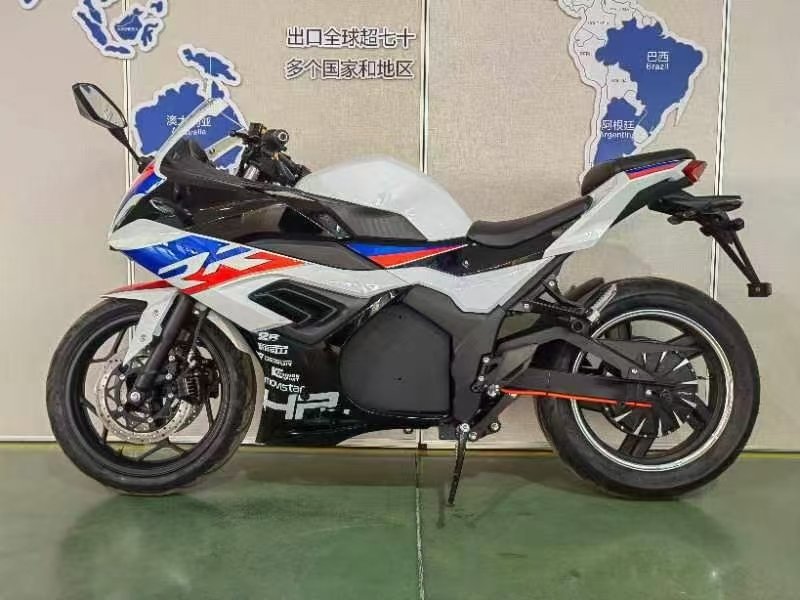As the popularity of electric motorcycles continues to soar, many prospective riders find themselves asking an important question: “Do I need a license to ride an electric motorcycle?” With the rising interest in sustainable transportation and the growing variety of electric motorcycles available, understanding the legal requirements for operating one is essential. In this article, we’ll break down the factors that determine whether you need a license, and delve into insights about leading electric motorcycle manufacturers shaping this dynamic industry.

Ⅰ. Understanding Electric Motorcycle Categories
Electric motorcycles come in many forms, ranging from low-powered scooters to high-performance machines capable of rivaling their gas-powered counterparts. The classification of the vehicle is the primary factor in determining whether a license is required. Generally, governments and regulatory authorities categorize electric motorcycles based on their motor power, top speed, and design.
Low-Powered Electric Scooters
Low-powered scooters with a top speed of around 20-30 mph and a motor power of less than 750 watts are often classified as bicycles or mopeds. Depending on where you live, you might not need a motorcycle license to operate these vehicles, but some jurisdictions may require a basic driver’s license or a moped-specific permit.
Standard Electric Motorcycles
Electric motorcycles that exceed certain speed or power thresholds are treated like traditional motorcycles under the law. This means that a motorcycle license is typically required to operate them. Additionally, riders may need to register their vehicle, carry insurance, and wear appropriate safety gear.
High-Performance Electric Motorcycles
High-performance electric motorcycles blur the lines between traditional motorcycles and cutting-edge electric vehicles. With top speeds exceeding 100 mph and advanced features, these bikes are subject to the same licensing and registration requirements as high-end gas-powered motorcycles.
Ⅱ. Factors That Affect Licensing Requirements
The specific licensing requirements for electric motorcycles vary widely based on your location. Here are some key factors to consider:
Country or State Laws:
Licensing laws differ significantly from country to country and even between states. For instance, in the United States, most states require a motorcycle license for vehicles capable of speeds greater than 30 mph. In contrast, some European countries may have stricter or more lenient regulations.
Age Restrictions:
Many jurisdictions impose age restrictions for obtaining a motorcycle license. Younger riders may face additional requirements, such as completing a safety course or obtaining parental consent.
Type of Electric Motorcycle:
As mentioned earlier, the category of the electric motorcycle—whether it’s a low-powered scooter, a standard motorcycle, or a high-performance machine—greatly influences the licensing requirements.
Training and Certification:
Some countries mandate safety training or practical exams before granting a license to operate an electric motorcycle. These measures aim to ensure that riders are adequately prepared for the road.
Ⅲ. Why Licensing Matters for Electric Motorcycles
Obtaining the appropriate license to ride an electric motorcycle is not just about adhering to the law; it’s also crucial for safety. Here are some reasons why licensing matters:
Safety Training:
Most licensing processes involve safety training, which equips riders with essential skills and knowledge to handle their motorcycle responsibly.
Legal Protection:
Riding without a proper license can result in fines, penalties, or even the impounding of your vehicle.
Insurance Eligibility:
Many insurance companies require proof of a valid license before providing coverage for electric motorcycles.
Ⅳ. What to Look for in an Electric Motorcycle
If you’re considering investing in an electric motorcycle, it’s worth exploring some of the key factors that define the best electric motorcycles on the market. Performance, range, design, and technology integration are all important aspects to consider. Electric motorcycles are available in a variety of styles and capabilities, catering to everyone from casual commuters to those seeking high-performance machines.
Ⅴ. Leading Electric Motorcycle Manufacturers
The electric motorcycle market is driven by innovation, and several electric motorcycle manufacturers stand out for their contributions to the industry:
Companies known for producing versatile and high-performance bikes have become pioneers in the market.
Other manufacturers focus on affordability and practicality, creating options for urban commuters.
High-performance innovators are pushing the limits of speed and advanced technology.
These manufacturers are pushing the boundaries of what electric motorcycles can achieve, offering innovative designs and sustainable alternatives to traditional motorcycles.
Final Thoughts
Whether or not you need a license for an electric motorcycle depends on various factors, including the type of motorcycle and local regulations. It’s crucial to research the laws in your area to ensure compliance and enjoy your electric motorcycle safely. For those new to the world of electric motorcycles, understanding the best electric motorcycles and learning about top electric motorcycle manufacturers can help you make an informed decision. With the right preparation and knowledge, you’ll be ready to hit the road on your electric motorcycle and embrace the future of sustainable transportation.